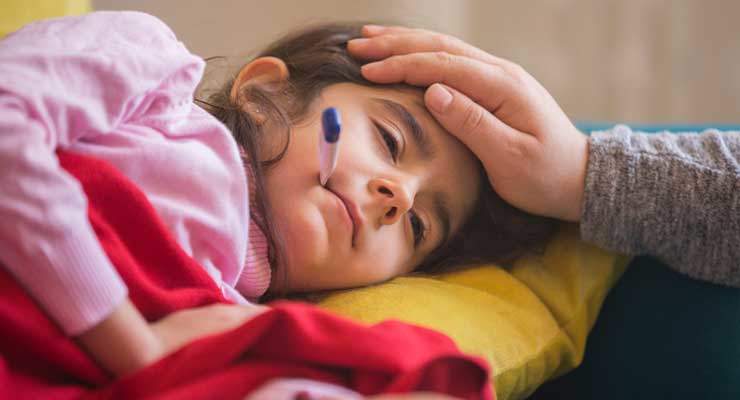Night sweats in children are profuse sweating during sleep. A child who suffers from night sweats may soak his clothes and even the bedding. Some children begin to feel hot and moist when they first go to bed, whereas other children don’t begin to sweat until later in the night. Children who have primary hyperhidrosis, a condition of excessive sweating with no underlying medical cause, may also sweat profusely during the day.
Nonmedical Causes
According to MayoClinic.com, night sweats are common and are not usually cause for alarm. Check to make sure that your child is not wearing pajamas that are making her too hot. Also check to see that she is not covered with too many blankets or blankets that are too heavy for the temperature in the bedroom.
Medical Causes
While fever can cause night sweats, a child who has a cold, the flu or sinus infection may also experience a bout of night sweats. The condition usually disappears as soon as the child is feeling better.
Secondary hyperhidrosis is a more serious condition that causes excessive sweating as a result of an underlying medical problem. For instance, children with cerebral palsy often have night sweats. A child who has tuberculosis, diabetes, a pulmonary disorder, thyroid dysfunction, an autoimmune disease or is in the early stages of a childhood cancer can experience night sweats as well.
Sleep Disorders
The Bristol-Meyers Squibb Children’s Hospital in New Brunswick, New Jersey advises parents that night sweats in children can be a symptom of a sleep disorder. Night sweats are commonly seen in children who experience night terrors and can be a symptom of obstructive sleep apnea. Nightmares may also cause a child to have night sweats when the child has bad dreams.
Diagnosis
Discuss with your child’s doctor his health history and sleep habits if night sweats persist. A doctor will want information about your child’s health history and sleep habits. In order to rule out possible causes for your child’s night sweats, the doctor may ask if the conditions in your child’s room are too hot. He will then check to see if your child is suffering from a fever, cold, sinus infection, ear infection or other common childhood illness.
Treatment
If there is no underlying condition causing your child’s night sweats, there may be little a doctor can do to alleviate the problem. Home treatment includes keeping your child well hydrated, lowering the temperature in your child’s bedroom and dressing your child in light, comfortable bed clothing. In cases where your child’s night sweats are a symptom of a medical problem, your doctor will begin treating the illness or disease
.
Special Considerations
Although night sweats are sometimes the symptom of a serious medical condition, most often this is not the case. Schedule an appointment with your child’s doctor if you are unable to identify any obvious causes for your child’s symptoms, if additional symptoms appear or if chronic night sweats fail to improve.






